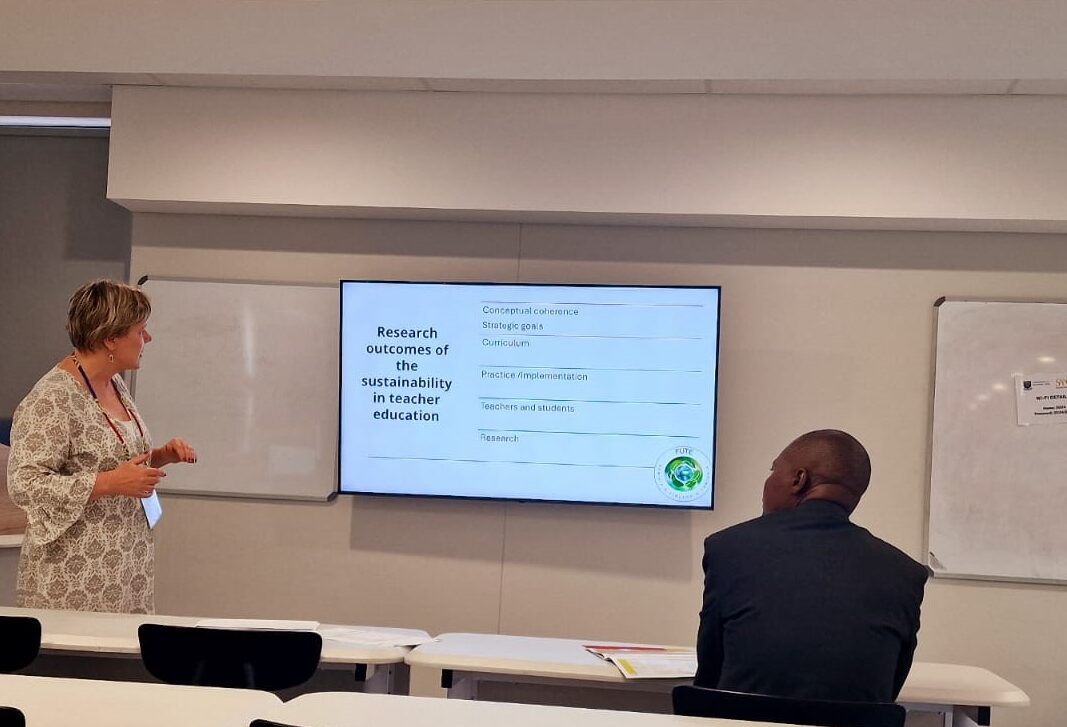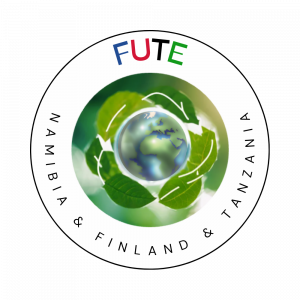FUTE blog series: FUTE Project Highlights at the 2024 SANORD Conference
by Cloneria Jatileni & Sari Havu-Nuutinen
After the successful conclusion of the FUTE Workshop 2 at the University of Namibia, Hifikepunye Pohamba Campus, Prof. Sari and Ms. Cloneria travelled to the University of the Western Cape in Cape Town, South Africa, to participate in the 2024 SANORD Conference, held from December 4-6, 2024.
At the conference, Prof. Sari, on behalf of the whole consortium, presented on the FUTE project, focusing on “Education for Sustainable Development in Teacher Education: Research Review and Teacher Educators’ Perceptions of ESD.” She began by outlining the aim of the FUTE project: to enhance the competencies and best practices in education for sustainable development (ESD) among teacher educators and student teachers in Finland, Namibia, and Tanzania.

Prof. Sari highlighted the three main approaches of the FUTE project:
1) Teacher Educators’ Capacity Building through Professional Development Training: Four workshops have been planned to support the teacher educators’ capacity building since the beginning of the project and will continue until the end of 2025.
2) Analysing and Redesigning Courses with SDG Components: This will be the project’s focus in 2025.
3) Practical Application of Learning Outcomes in Local Communities: This phase will commence in 2025 and continue until the project’s conclusion in 2026.
These approaches are linked to four key outputs:
- Strengthening the educational capacity of teacher educators and their competence to revise courses to include sustainability dimensions.
- Improving pedagogical methods and creating new innovative solutions for teaching and learning.
- Facilitating student teachers’ sustainability-related mini-projects with local community partners during teaching practice.
- Ensuring the implementation of sustainable development project activities with project collaborators or local communities.
Additionally, Prof. Sari’s presentation provided an overview of existing research outcomes on sustainability in teacher education, focusing on:
Conceptual Coherence: Discussed in relation to theoretical and pedagogical frameworks, including diverse conceptual approaches used in sustainability education.
Strategic Goals: Highlighted the diverse strategic goals and the challenges of fulfilling sustainability objectives in universities offering teacher education. Existing research shows very low progress of ESD in initial teacher education.
Curriculum: Noted the lack of clear sustainability components in teacher education curricula and how the FUTE project aims to fill this gap within the collaborating universities.
Practice/Implementation: Focused on how ESD can be integrated into teacher education through holistic and systematic approaches to teaching and learning.
Teachers and Students: Addressed the differences in perceptions between students and teachers on ESD, noting that ESD is sometimes used unconsciously.
In the concluding stage, Prof. Sari presented the FUTE pre-survey results from Namibian, Tanzanian, and Finnish teacher educators. The survey revealed that ESD is generally seen as relevant and desirable by teacher educators, who have a broad and multidimensional understanding of ESD, often focused on ecological dimensions but also including economic and social aspects.
The presentation highlighted the complementary nature of existing research findings and the rationales provided by teacher educators in the FUTE pre-survey. This underscores the significant impact the FUTE project could have on the collaborating institutions of higher education and its contribution to the global perspective on ESD.
